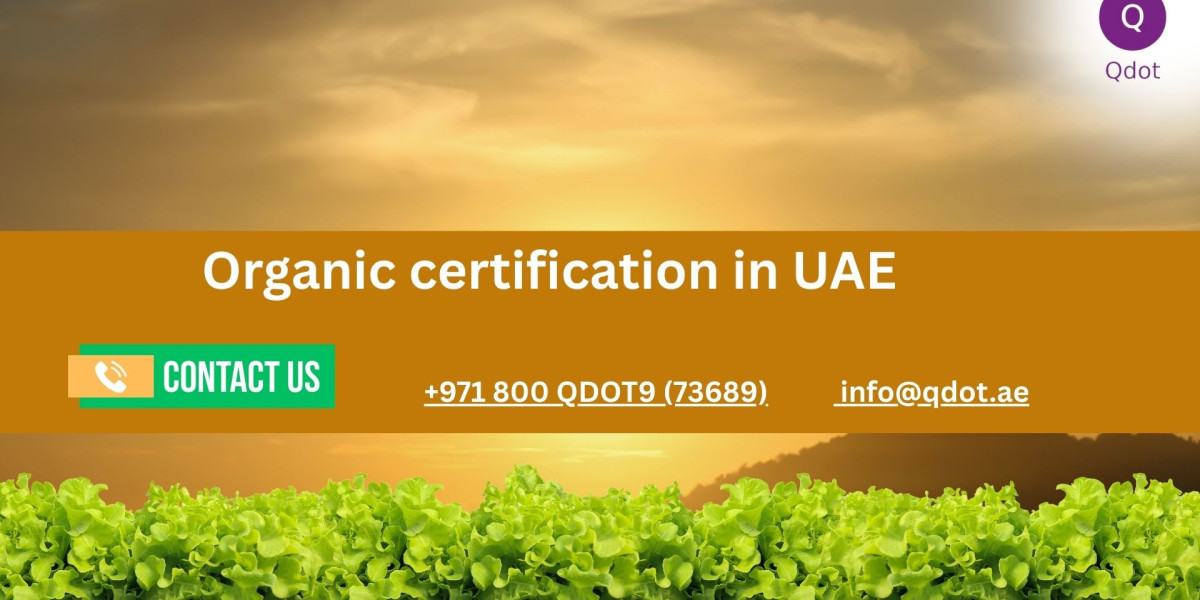Organic food is no longer just a trend; it’s a movement reshaping the food industry worldwide, including in the UAE. With increasing consumer awareness and government initiatives promoting sustainable agriculture, organic certification has become essential for farmers and food businesses. But why does it matter? Let’s explore.
1. Builds Consumer Trust & Brand Credibility:
People today focus intensely on the foods they consume. Consumers need guarantees that their food lacks dangerous chemicals, pesticides, and synthetic additives. A product requiring organic certification shows it has met thorough standards, which enhances consumer confidence. Consumers trust organic certification because it guarantees product quality therefore, they prefer organic products to ones lacking certification
2. Expands Market Opportunities:
The organic certification provides much more than a mark of compliance because it unlocks premium market opportunities. Rapid growth for organic product demand exists in the UAE due to health-focused residents combined with the country's significant foreign community. Supermarkets and restaurants together with online stores, prefer to carry certified organic items since they target a specific group of customers who are growing in numbers. The organic label creates new export possibilities primarily because strict organic regulations exist in targeted foreign markets.
3. Increases Profitability & Competitive Advantage:
Consumers are willing to pay more for organic products, meaning higher profit margins for certified farmers and businesses. While the certification process involves costs, the long-term benefits outweigh the expenses. Being certified also gives businesses a competitive edge, setting them apart from conventional food suppliers.
4. Supports Sustainability & Environmental Responsibility:
The arduous climate of the UAE requires special attention through organic farming which leads to enriched soils and saves water resources as well as minimizes environmental degradation. Organic agricultural methods do not implement either synthetic pesticides or fertilizers, therefore making farming practices more ecologically sustainable. It serves UAE farmers to implement organic standards because these practices maintain soil fertility and biodiversity together with environmental conservation.
5. Aligns with UAE Government Initiatives:
Organic agriculture receives focused promotion from the UAE government through its implementation of policies and support measures. As the regulatory authority MOCCAE controls organic farming by upholding international criteria for certifications. Organic certification holders, including farmers and businesses, obtain government backing as well as financial grants and enhanced market presence in their local areas.
Through Power BI analytics Qdot International assists UAE farmers and food businesses to optimize their organic certification procedures. Businesses operating in UAE must use an efficient system to track compliance because strict regulatory requirements from the Ministry of Climate Change and Environment (MOCCAE) demand it. Real-time dashboards combined with automated reporting functionalities from Qdot allow their clients to maintain continuous compliance with all certification standards while avoiding delays. Organic market analytics allows businesses to predict client preferences for organic goods, which enables better pricing models that support an expanded market presence throughout UAE and international markets. Organic certification in UAE proves to be profitable after businesses utilize forecasting tools to conduct cost analysis and optimize budgets. Qdot data-driven tools allow businesses to streamline audits along with lower manual workload and secure better market positions in the increasing organic food market.



